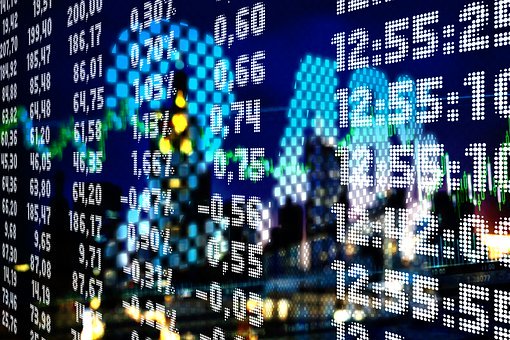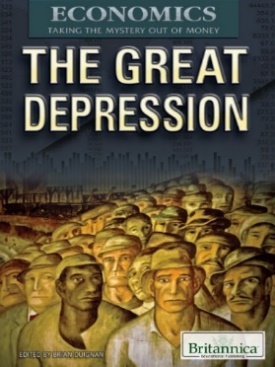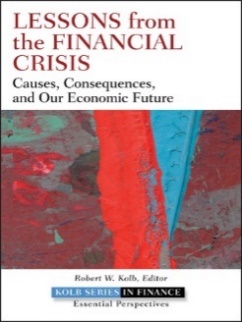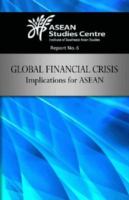Learning Package 1 - Economic Downturns

Photo credit: Retrieved from pixabay.com/illustrations/corona-virus-index-indices-4917912/
An economic downturn or recession is “a significant decline in economic activity spread across the economy, lasting more than a few months.1” Economies can slow down within a nation, a specific region or on a global scale. Reasons for recessions can include, but are not limited to, a wide range of internal and external factors such as loss of confidence in investment and the economy, high interest rates, post-war slowdown, wage-price controls, stock market crash and falling housing prices.
Economic downturns in the 20th century include the Great Depression in the 1930s, the Oil Crisis of 1973, the recession of 1982, the 1997 Asian financial crisis and the 2008 global financial crisis. They have each sent shockwaves throughout the world’s economy.2
The COVID-19 pandemic has severely affected and disrupted businesses and economies throughout the world. The International Monetary Fund (IMF) has predicted a 3 per cent fall in the global economy, the steepest downturn since the Great Depression.3 In Singapore, the Ministry of Trade and Industry (MTI) has projected that the “(Singapore) economy will shrink by 7 to 4 per cent” thereby making this “Singapore’s worst-ever recession since independence in 1965.4”
With one of the most open economies in the world, Singapore is especially susceptible to the fallout from recessions in larger economies.5 From the first post-independence recession in 1985 that saw its overall growth rate shrink to -3.5% and unemployment rise to 4.1%,6 to the financial crisis in 2008, Singapore’s macroeconomic policies and economic governance, driven by two key policy concepts, strategic pragmatism and the developmental state model helped counter or manage the effects of these economic downturns.7
To learn more about economic downturns and their impact as well as how Singapore has dealt with economic downturns, check out the resources listed below.
Websites
1. A history of recessions
CNBC.com (2010). A history of recession. CNBC.com. Retrieved 2020, May 30.
2. Recession: When bad times prevail
Claessens, S. & Kose, M. A. (2020, February 24). Recession: When bad times prevail. International Monetary Fund. Retrieved 2020, May 30.
3. Ten Lessons from the economic crisis of 2008
Summer, S. (2019). Ten Lessons from the economic crisis of 2008. United States: Cato Journal. Cato Institute. 39(2). 449–459. Retrieved 2020, May 30.
4. Asian financial crisis 1997–1998
Chew, V. (2016). Asian financial crisis 1997–1998. Infopedia, National Library Board. Retrieved 2020, May 30.
5. Have we learned the lessons of the great recession?
Kurczy, S. (2018). Have we learned the lessons of the great recession? Ideas and Insights, Columbia Business School. Retrieved 2020, May 30.
6. Preparing for a deeper downturn
Straits Times (2020, May 1) Preparing for a deeper downturn. Straits Times. Retrieved 2020, May 30.
7. Singapore’s approach to managing economic crises
Woo. J. J. (2018). Singapore’s approach to managing economic crises. Lee Kwan Yew School of Public Policy. 1–20. Retrieved 2020, May 30.
Ebooks
1. The Great Depression economics: Taking the mystery out of money
Duignan, B. (2012). The Great Depression economics: Taking the mystery out of money. Britannica Educational Publishing. Retrieved from OverDrive. (myLibrary ID is required to access this ebook.)

2. Lessons from the financial crisis: Causes, consequences and our economic future
Kolb, R. (2010). Lessons from the financial crisis: Causes, consequences and our economic future. New Jersey: Wiley. Retrieved from OverDrive. (myLibrary ID is required to access this ebook.)

3. Global financial crisis: Implications for ASEAN
Institute of Southeast Asian Studies. (2015). Global financial crisis: Implications for ASEAN. Institute of Southeast Asia Studies. Retrieved from OverDrive. (myLibrary ID is required to access this ebook.)

4. The Great Hangover: 21 Tales of the new recession from the pages of Vanity Fair
Carter, G. & Vanity Fair. (2010). The Great Hangover: 21 Tales of the new recession from the pages of Vanity Fair. Harper Collins. Retrieved from OverDrive. (myLibrary ID is required to access this ebook.)

5. Nowhere to hide: The great financial crisis and challenges for Asia
Lim, M. (2010). Nowhere to hide: the great financial crisis and challenges for Asia. Institute of Southeast Asian Studies. Retrieved from OverDrive. (myLibrary ID is required to access this ebook.)
Videos and Podcasts
1. What coronavirus means for the global economy
2. What causes an economic recession?
Source: Coffin, R. (2019, October 15). What causes an economic recession? TED-Ed. Retrieved 2020, May 30.
3. Here’s what caused the Great Recession
Source: Here’s what caused the Great Recession. (2015, May 15). HISTORY. Retrieved 2020, May 30.
4. A series of unfortunate recessions
Malone, K. (2019, October 30). A series of unfortunate recessions. National Republic Radio. Retrieved 2020, May 30.
Journal Articles
1. The Asian economic crisis: The way ahead for Singapore
Tan, A. (1999, May 20). The Asian economic crisis: The way ahead for Singapore. National University of Singapore. Retrieved 2020, May 30.
2. Understanding the great recession
Christiano, L. et al. (2015). Understanding the great recession. American Economic Journal: Macroeconomics. Retrieved 2020, May 30 from JStor database via NLB’s eResources website. (myLibrary ID is required to access this ebook.)
3. What happens during recessions, crunches and busts
Claessens, S., Kose, M. A., & Terrones, M. E. (2008). What happens during recessions, crunches and busts. Economic Policy. Retrieved 2020, May 30 from JStor database via NLB’s eResources website. (myLibrary ID is required to access this ebook.)
4. Singapore and the recession of 1985
Rigg, J. (1998). Singapore and the recession of 1985. Asian Survey. Retrieved 2020, May 30 from JStor database via NLB’s eResources website. (myLibrary ID is required to access this ebook.)
5. The Asian financial crisis: Singapore’s experience and response
Chia, S. Y. (1998). The Asian financial crisis: Singapore’s experience and response. ASEAN Economic Bulletin. Retrieved 2020, May 30 via NLB’s eResources website. (myLibrary ID is required to access this ebook.)
Chinese, Malay and Tamil Resources
1. 财经观察:九十年前大萧条 深刻教训当记取
金旼旼、杜静、樊宇。(2019年10月24日)。财经观察:九十年前大萧条 深刻教训当记取。新华网。 Retrieved 2020, June 3.
The article recommends looking into the factors that caused previous economic recessions to better plan and implement mitigating measures for future recessions. In particular, it focuses on the Great Depression and argues that the Tariff Act of 1930 played an integral role in bringing about a global depression.
2. 社论:预防金融风暴再次来袭
社论:预防金融风暴再次来袭。(2018年9月15日)。联合早报。 Retrieved 2020, June 3.
This article investigates the reasons why, even with a good foundation, Singapore was still affected by the global financial crisis in 2008.
3. S’pura akan hadapi kemelesetan ekonomi tahun ini untuk tempoh yang sukar ditentukan: MAS
S’pura akan hadapi kemelesetan ekonomi tahun ini untuk tempoh yang sukar ditentukan: MAS. (2020, April 28). Berita Mediacorp. Retrieved 2020, June 2.
According to the Monetary Authority of Singapore (MAS), Singapore will face an economic recession this year because of the COVID-19 pandemic.
4. S’pura lebih sedia tangani kemelesetan ekonomi jika keadaan tambah buruk
S’pura lebih sedia tangani kemelesetan ekonomi jika keadaan tambah buruk. (July 12, 2019). Berita Mediacorp. Retrieved on 2020, June 2.
Singapore and other Asian countries are equipped to handle the economic downturn even if the COVID-19 situation were to worsen. This is due to the prudent fiscal policies that are already in place and citizens understanding the importance of upgrading their skills in order to adapt.
5. பொருளியல் மந்தநிலை எவ்வளவு கடுமையாக இருக்கும் என்பதைத் தெளிவாக முன்னுரைக்க முடியாது' - சிங்கப்பூர் நாணய வாரியம்
பொருளியல் மந்தநிலை எவ்வளவு கடுமையாக இருக்கும் என்பதைத் தெளிவாக முன்னுரைக்க முடியாது’ - சிங்கப்பூர் நாணய வாரியம் (2020) Seithi.Mediacorp. Retrieved on 2020, June 2.
The Monetary Authority of Singapore (MAS) has warned that Singapore will face a recession this year due to the impact of the COVID-19 pandemic and Singapore’s economic forecast for the second quarter is expected to shrink even further.
Disclaimer/ Rights statement
The information in this resource guide is valid as of June 2020 and correct as far as we are able to ascertain from our sources. It is not intended to be an exhaustive or complete history on the subject. Please contact the Library for further reading materials on the topic.
All Rights Reserved. National Library Board Singapore 2020.
References
-
What is the difference between a recession and a depression? (2007, February 1). Federal Reserve Bank of San Francisco. Retrieved 2020, May 30 from https://www.frbsf.org/education/publications/doctor-econ/2007/february/recession-depression-difference/ ↩
-
Halton, C. (2020, January 29). Global Recession Definition. Investopedia. Retrieved 2020, May 30 from https://www.investopedia.com/terms/g/global-recession.asp ↩
-
Coronavirus: Global economy in 2020 on track for sharpest downturn since 1930s Great Depression: IMF. (2020, April 14). Straits Times. Retrieved 2020, June 19 from https://www.straitstimes.com/business/economy/coronavirus-great-lockdown-to-shrink-global-economy-by-3-in-2020-imf ↩
-
Singapore heads for worst recession since independence; economy to shrink by 7% to 4% on Covid-19 impact. (2020, May 26). Straits Times. Retrieved 2020, May 30 from https://www.straitstimes.com/business/economy/spore-to-sink-into-deeper-recession-than-expected-2020-growth-forecast-cut-to ↩
-
Rolf, J. (2009). Singapore in Its Worst Recession for Years. The Effects of the Current Economic Crisis on the City-States Economy. Journal of Current Southeast Asian Affairs 28, No. 4 (2009): 95–110. Retrieved 2020, May 30 from https://doi.org/10.1177/186810340902800405 ↩
-
Asian Financial Crisis Erupts. HistorySG, National Library. Retrieved 2020, May 30 from http://eresources.nlb.gov.sg/history/events/87709dd7-72ae-47e2-876c-60544bb25e00 ↩
-
Woo, J. J. (2018). Singapore’s Approach to Handling Economic Crisis. Lee Kuan Yew School of Public Policy, 1–20. Retrieved 2020, May 30 from https://lkyspp.nus.edu.sg/docs/default-source/case-studies/singapores_approach_to_managing_economic_crises_22052018_lowres.pdf?sfvrsn=7387660a_0 ↩

